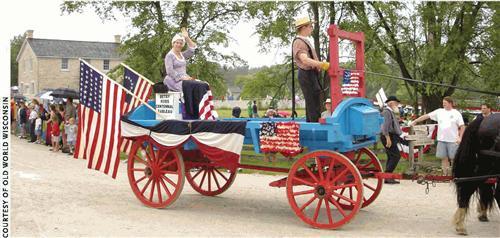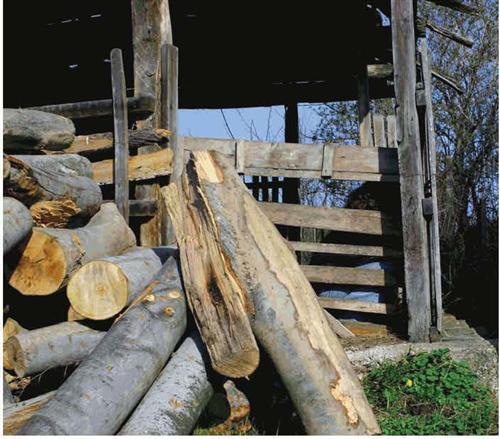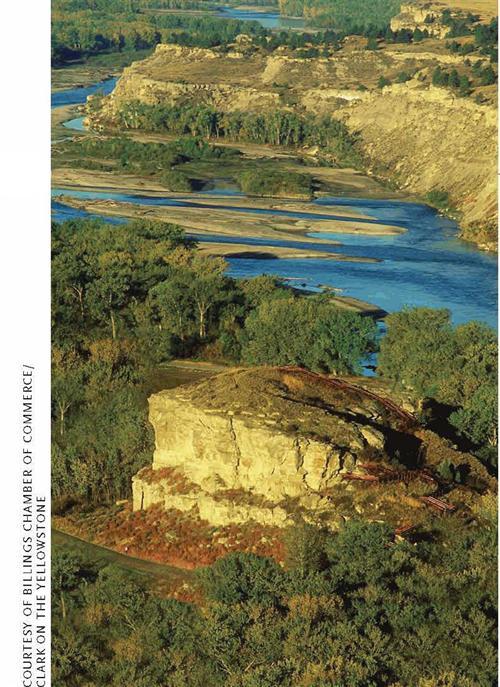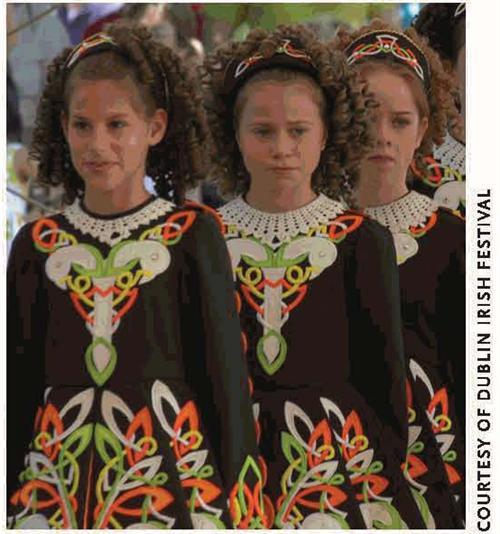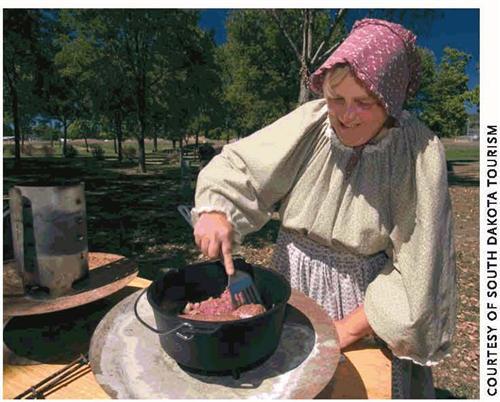Sign up for the Family Tree Newsletter Plus, you’ll receive our 10 Essential Genealogy Research Forms PDF as a special thank you!
Get Your Free Genealogy Forms
"*" indicates required fields
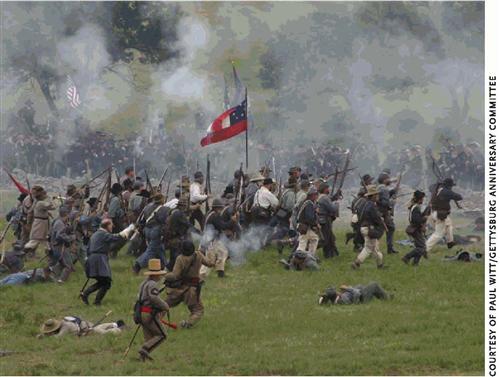
Gettysburg, Pennsylvania
War Fare
History buffs will commemorate the 1863 Battle of Gettysburg — remembered as one of the bloodiest Civil War skirmishes, as well as a major turning point in the conflict — July 1-3 at the 143rd annual Gettysburg Civil War Battle Re-enactment.
Besides watching the battlefield action, you’ll get to tour Union and Confederate military camps, see a live mortar demonstration and visit the living history village. This three-day event also includes vintage fashion shows, presentations on period medical practices, 1860s religious services, Civil War weddings, and the music of a drum-and-bugle corps and a brass band.
Advance adult tickets range from $22 to $49. Admission for children 12 and under costs $12 to $24. (Add $9 per person per day for seats in the grandstand.) For more details, call (717) 338-1525 or visit <www.gettysburgreenactment.com>.
Bradley, Maine
Log Jam
Experience life in a 1790s sawmill and logging village at Maine Forest and Logging Museum’s Living History Days July 8-9. You can ride on a horse-drawn wagon, chat with costumed interpreters and listen to bagpipe and fiddle music as you stroll around the site. Additionally, you can taste traditional Maine fare such as bean-hole-beans and reflector-oven biscuits. If that’s not enough, visit the blacksmith, candle-maker, woodworker and trappers.
Admission is $7 for adults and $2 for children ages 2 to 12. Call (207) 581-2871 or visit <www.leonardsmills.com> for more information.
Eagle, Wisconsin
Old-fashioned Fourth
Celebrate the birthdays of our nation and Old World Wisconsin July 4 at 30th Anniversary Celebration: An Old World Fourth of July. You can observe the holiday as your 19th- and early 20th-century ancestors did by playing old-time games, listening to patriotic tunes and watching a parade.
While you’re at Old World Wisconsin, take in this living history museum’s 1870s crossroads village and 10 ethnic farmsteads. You’ll see craftspeople, such as blacksmiths and spinners, practice their trades; watch re-enactors portray town hall debates as described in historical documents; and “meet” Wisconsin gubernatorial candidate “Fighting Bob” La Follette.
The Fourth of July celebration is included in museum admission, which costs $14 for adults, $12.80 for senior citizens and $8.50 for children ages 5 to 12. Hours are 10 a.m. to 5 p.m. For additional details, call (262) 594-6300 or visit <www.wisconsinhistory.org/oww>.
Billings, Montana
Signature Celebration
On July 25, 1806, William Clark, co-leader of the Corps of Discovery, carved his name and the date into a sandstone bluff he called Pomp’s Tower. Clark’s still-visible signature is the only remaining physical evidence of the Lewis and Clark expedition that still exists as it did on the trail 200 years ago. Visit this landmark (now named Pompey’s Pillar) and commemorate the expedition July 22-25 at Clark on the Yellowstone.
At this national signature event for the Lewis and Clark bicentennial commemoration, Clark’s third-great-grandson Bud Clark will re-enact the moment when his ancestor autographed the pillar.
You’ll be able to see traditional games and dancing at an American Indian encampment with more than 30 tepees. And don’t miss the Living History Mall: There, examine a display of items Corps of Discovery explorers used and watch re-enactors perform regular camp duties such as molding bullets, washing clothes, repairing camp equipment, writing in journals and more.
You also can attend symposiums on Clark’s legacy as well as ceremonies honoring the Corps and the American Indians who helped them along journey. And stroll the streets of downtown Billings Friday night for the Taste of the Trail event.
Admission to all the events is free. Go to <www.clarkontheyellowstone.org> or call (406) 245-4111 for more information.
Dublin, Ohio
Éire Ball
Honor your Irish roots Aug. 4-6 at the 19th annual Dublin Irish Festival. From pub-crawling and Irish dancing to heritage exhibits and genealogy lectures, this event has it all.
The festival begins Friday evening with an Irish dance competition. You can see dance troupes perform throughout the weekend, and learn a few dance steps yourself. Make time to visit exhibits — such as the 10th-century Irish village and the Wake House — listen to storytellers and taste traditional Irish dishes. Don’t forget to enter the festival’s various Irish contests: Perhaps you or your grandchildren will take home top honors for having the reddest hair, greenest eyes or most freckles.
History-minded folks will want to watch re-enactors stage a battle of the 17th-century English civil wars, in which many Irishmen were conscripted to fight. Irish roots expert Dwight Radford and Franklin County Genealogical Society members will be on hand to provide genealogy research advice.
Admission is $10 for adults and $7 for senior citizens; children 12 and under get in free (though admission to the Wee Folks area costs $10). Tickets are cheaper if you purchase them online before Aug. 3. For more information, call (614) 410-4545 or go to <www.dublinirishfestival.org>.
Yankton, South Dakota
Going Dutch
See the cookware your pioneer ancestors may have used during their journey West at the fourth annual Great Plains Bison-tennial Dutch Oven Cook-off Aug. 26-27. The Dutch oven (also dubbed a “bake kettle” or “camp oven”) was developed in the early 1700s and traveled to America with immigrants from England and Holland. A journal entry by Joseph White-house, a member of the Corps of Discovery, suggests Meriwether Lewis and William Clark brought a Dutch oven on their journey West (they buried one June 11, 1805, and retrieved it on the way home). It’s thought Lewis and Clark chowed down on their first buffalo when they entered what’s now South Dakota in August 1804.
At the cook-off, contestants prepare either a one- or three-pot meal, including a main dish of bison meat, a dessert and a bread. Judges evaluate each team’s etiquette, preparation, interaction with spectators, Dutch oven technique and sportsmanship, as well as the final product’s overall appeal, appearance and taste.
You also can see entertainment, visit with local artisans and taste dishes made with bison meat. Admission is free. For additional details, call (605) 664-5920 or go to <dutchovencookoff.com>.
From the August 2006 issue of Family Tree Magazine.
ADVERTISEMENT

